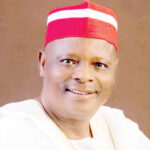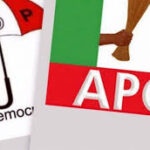In the first instalment of this piece two weeks ago, we argued that the APC coalition is a mismatch of its two dominant partners, and therefore inherently unstable: Political elite in the southwest wing of the coalition have lacked the enthusiastic support of the voters in the region, while the enthusiasm of northern political elite has lagged far behind the support of the coalition’s northern voters.
We noted, also, that in the run up to the 2023 presidential election, two variables have changed the APC’s political structure almost completely. The first of these variables, we argued, is the very fact that Buhari himself cannot be a candidate in the next election, and more crucially, the growing ambition of some in the northern wing of the party to retain presidential power in the region by shopping for alternative partners from across other regions.
But the second variable in this political equation is still a consequence of the first. It is that at the next electoral turn, the southwest wing of the APC will surely field a presidential candidate, unlike in both 2015 and 2019 which were tacitly conceded to Buhari. These variables, we said, represent the first major crack in APC’s Blue Wall.
Which of them will be more consequential for the party from now to 2023 and beyond? There are two reasons to think the second. First, the ambitious politicians in the northern camp of the APC seeking to retain power in the region are unlikely to succeed. The sharing of presidential power between the north and south of Nigeria is not formally enshrined in the APC’s constitution. But it is deeply engraved in Nigeria’s political DNA. Any attempt by an ambitious northern group within the APC to ignore or trample on it will incur the heaviest of political costs, not just for the party, but for all northern politicians in the near future.
Presidential elections in Nigeria follow a simple law: any party or candidate seeking to win it must build the largest political bridge across The Niger. Buhari’s own five campaigns are most illustrative of this theory. But if he or any northern group under his watch is seen to betray the very partners that enabled him to win at the fourth and fifth time of trying, then other northern politicians seeking the same office will bear the burden of that betrayal in the foreseeable future, since Nigerian politics today, as in 1960, is largely defined against ‘the north’, regardless of party difference.
The second reason lies in the unique electoral behaviour of the southwest itself. In the nine presidential elections ever held in Nigeria over the past four decades – from 1979 to 2019 – the votes cast in the southwest sketch a clear political constant. A Yoruba candidate at the head of a major party in any of the elections will receive a high turnout and the most votes from the southwest, as happened in 1979, 1983, 1993, 1999, and 2003. But where there is no Yoruba candidate in a major party in the election, turnout will be low and the votes will be split relatively evenly between the non-Yoruba candidates available, as in 2007, 2011, 2015 and 2019.
This is the Iron Law of southwest voter choice in Nigerian presidential elections so far, even in a country where regionalism, not ethnicity, as many assume, is the primary driver of voting behaviour, and explains why the region’s votes for Buhari were underwhelming relative to its electoral strength in the two past elections, even with Vice President Yemi Osinbajo at the tail of the presidential tickets in both cases.
The implication of this historical analysis, however, is that with a Yoruba candidate at the head of the presidential ticket of the APC in 2023, southwest voters, previously unaligned with their elite in the past two elections, will now fall in line. For me, the #EndSARS protests last month were the clearest indication yet that this re-alignment of voters and elite in that region towards the same political direction has already happened.
Its leading figures, including the vice president thumped up the protesters, and some state governors in the region even marched with them. The Speaker of the House of Representatives, at this point, conveniently claimed that he would not pass any budgets that did not provide for compensation for victims of the protests. Southwest intellectuals like Professor Bola Akinterinwa began to talk up genocide and International Criminal Court for Buhari in the media, long before the so-called ‘Lekki massacre’, if ever any such thing happened.
Furthermore, the diaspora section of the same regional took up the political mantle to internationalise the protests. This was effectively the very moment of the so-called ‘political hijacking’ of the protests as every political element in the southwest sought to profit politically from the genuine grievances of Nigeria’s young people by piling pressure upon a government they supposedly and clearly have been a part of over the past five years.
And all of this, then, leads us to the older, and more substantive, crack in the APC, which is that even though the northern and southwestern partners in the coalition have fought two elections together and have shared the spoils of office relatively evenly between them, they have not actually governed together as one unified political and policy front. And it is to this that we now turn.

 Join Daily Trust WhatsApp Community For Quick Access To News and Happenings Around You.
Join Daily Trust WhatsApp Community For Quick Access To News and Happenings Around You.


